Palace of Westminster: Dig unearths 18th Century fish token
- Published
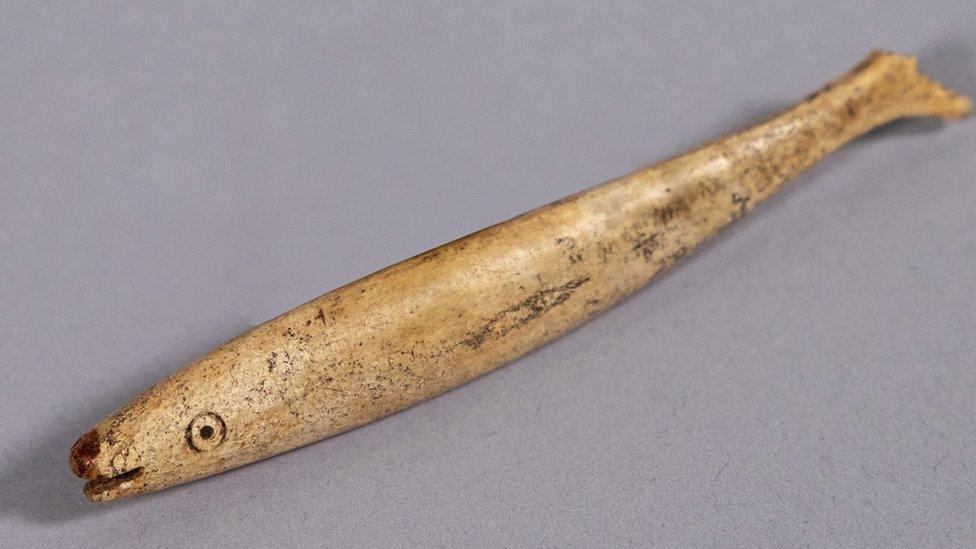
Experts say the token, carved from animal bone, was likely used for scoring in card games
A 200-year-old carved, wooden fish has been uncovered by experts restoring the Palace of Westminster.
Archaeologists who found the animal bone figure beneath the House of Lords' Royal Court said it was most likely used as a token in card games.
It comes after possible remains of a medieval Thames river wall were found in November as part of the ongoing work on the Houses of Parliament.
The restoration programme described the discovery as "amazing".
The counter was found by Roland Tillyer, senior geoarchaeologist at Museum of London Archaeology (MOLA), while monitoring the digging of a borehole, deep in the earth under the House of Lords' Royal Court.
"Counters like this were commonly used at gaming tables in Britain during the 18th and 19th Century and were used as tokens for scoring," Michael Marshall, MOLA finds team leader explained.
"A famous literary description of this practice comes from Jane Austen's Pride and Prejudice - published in 1813 - where Lydia Bennet is described as winning and losing fish while playing games of 'lottery tickets'," he added.
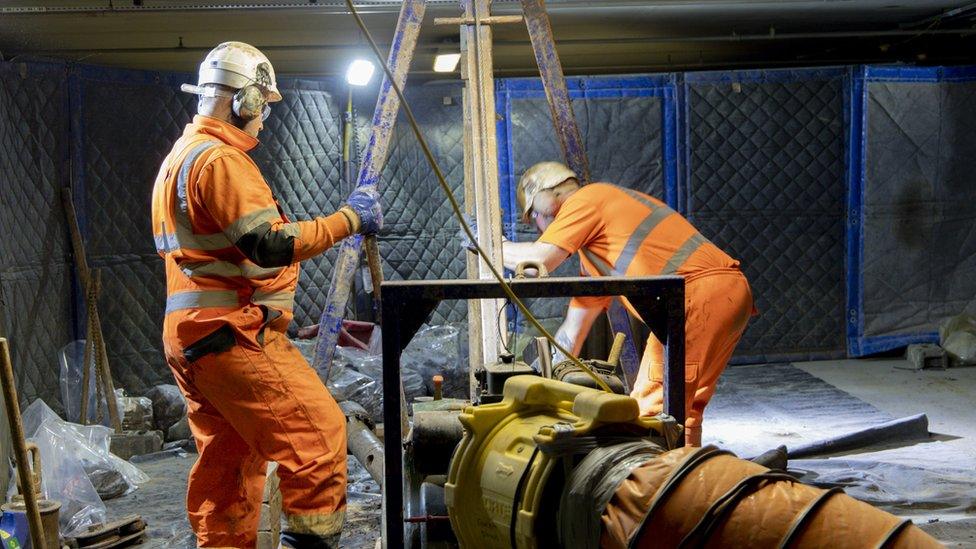
The token was found while monitoring the digging of a borehole under the House of Lords' Royal Court
Archaeologists from the programme said the fish counter would have been whittled to shape, then polished - the mouth cut with a saw and the eye inscribed with a centre bit tool or compass.
The eye may originally have been filled with black wax, or a similar dark substance, experts explained.
Engineers have spent about 7,500 hours investigating and drilling boreholes as part of the ongoing work on the Houses of Parliament, since July 2022.
Diane Abrams, from the Houses of Parliament Restoration and Renewal Programme, external, described the discovery as "amazing".
"It certainly highlights the value of the Palace's 'hidden' archaeology beneath its buildings and spaces and how even a single find such as this can contribute to its overall sense of history and our literary past," she added.

Follow BBC London on Facebook, external, Twitter , externaland Instagram, external. Send your story ideas to hellobbclondon@bbc.co.uk, external
- Published22 November 2022
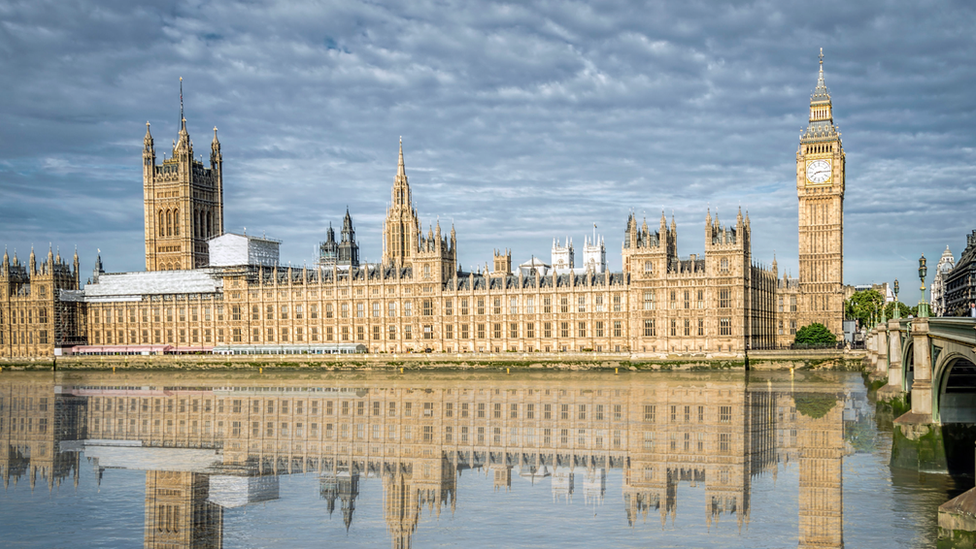
- Published23 February 2022
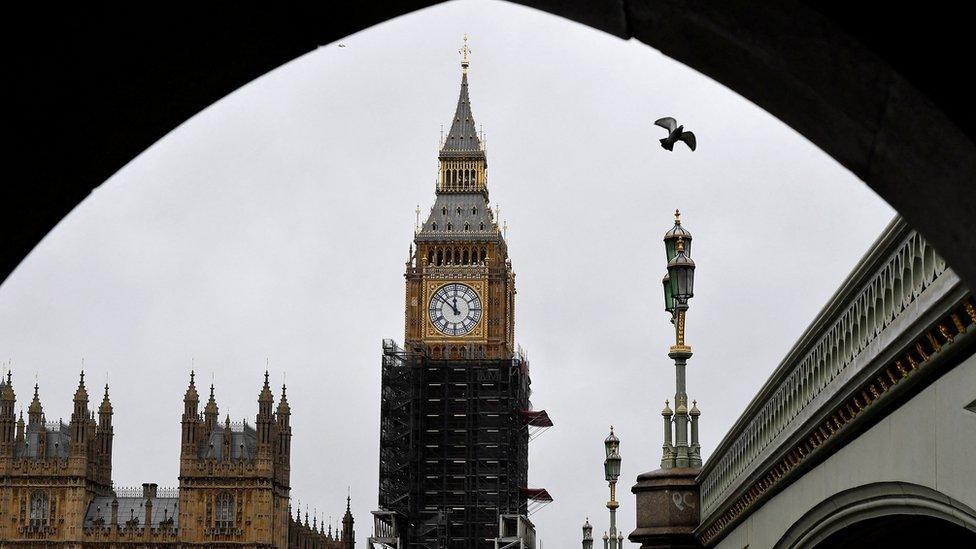
- Published18 June 2015
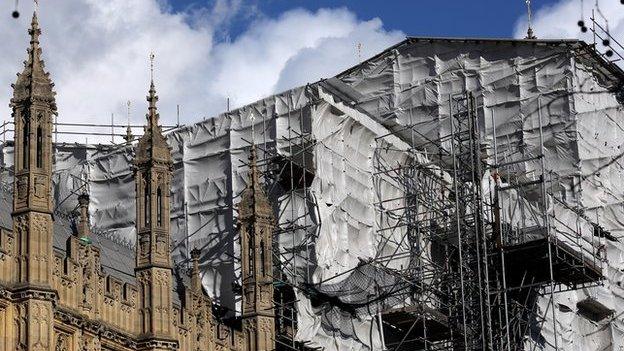
- Published13 February 2022
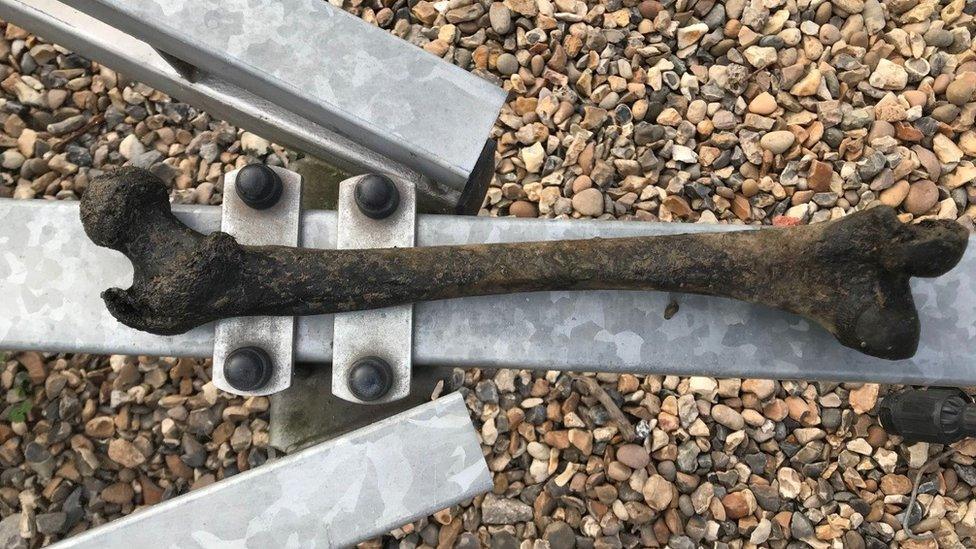
- Published22 October 2021